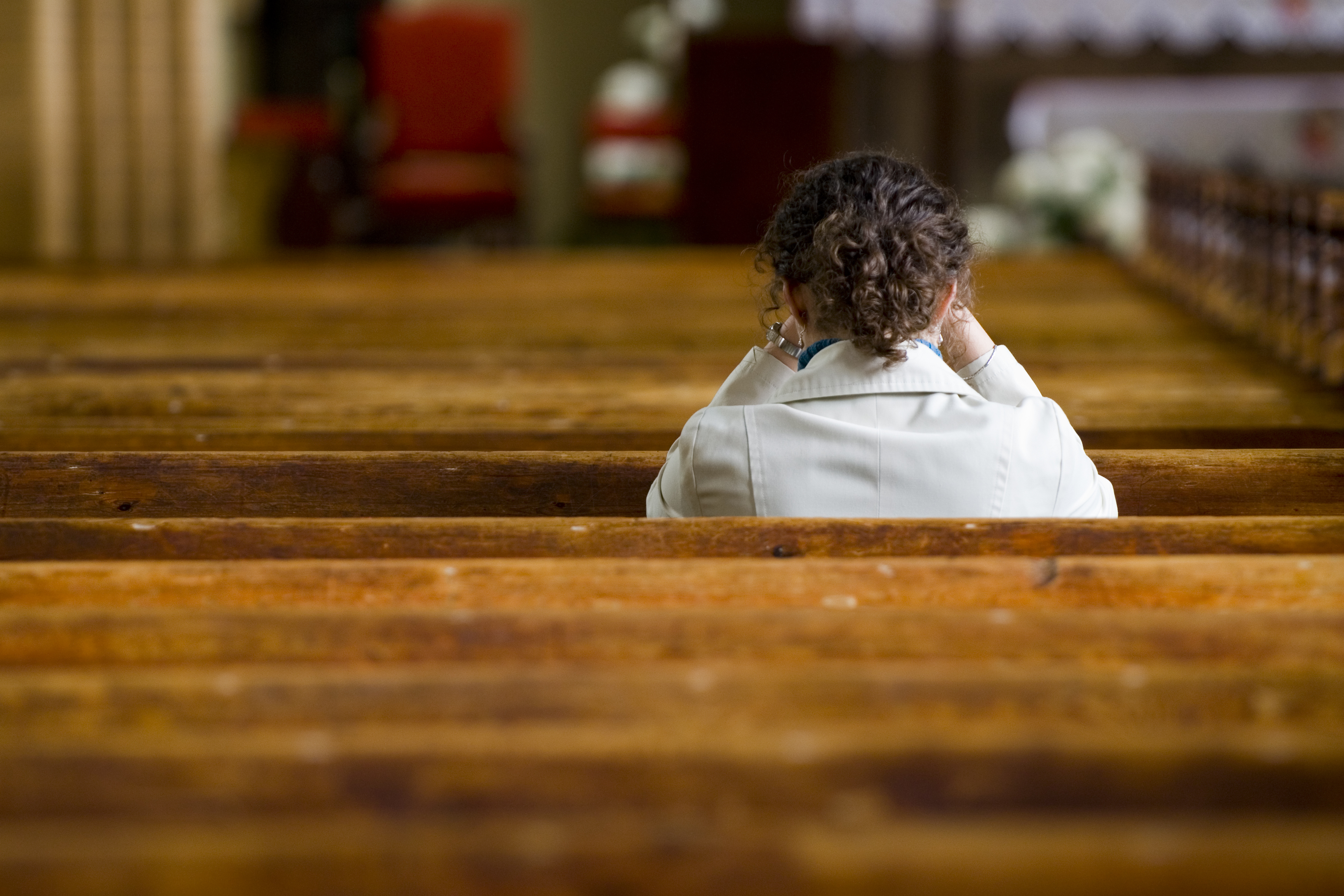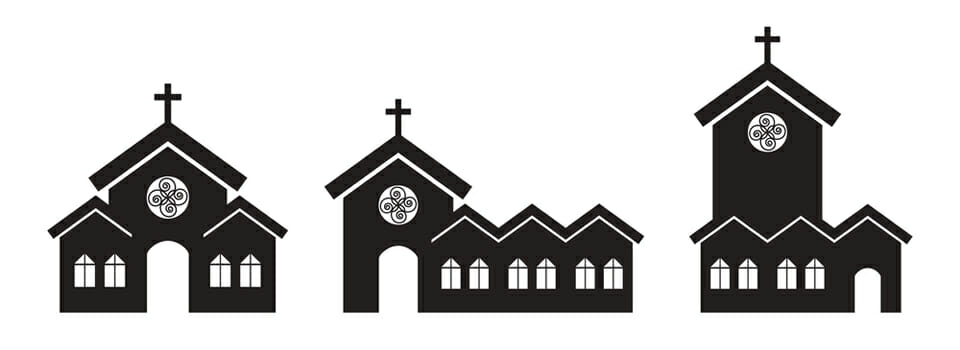Sermon for the Fourth Sunday in Lent, preached on Sunday, March 14, 2021, by the Rev. Daniel M. Ulrich. [Jesus said] As Moses lifted up the
serpent in the wilderness, so must the Son of Man be lifted up, that whoever
believes in him may have eternal life. (Jn 3:14-15)
Take a quick
moment and think about all the problems in your lives; all the problems that
plague our society and culture; all the problems that cause suffering
throughout the world. It doesn’t take
long to start naming things off because there are so many problems. Our lives are consumed with trying to find
solutions to these problems. But behind
every single one, behind every problem in our lives is our problem of sin, and
the only solution for sin is Christ’s cross.
The problems in
life are many. There’s physical
problems; like hunger and thirst. It’s
saddening to think that for some children here in the US, the only meals they
get are school lunches. They have no
food at home, so FUEL bags filled with a few healthy snacks are sent home with
them to keep them somewhat fed on Saturdays and Sundays. And then think about all those children
throughout the world who are in the same situation, but who don’t have school
lunches to rely on. Homelessness and
poverty are seen throughout the globe.
Diseases of all kinds plague are bodies, some that know how to deal with
and heal, but many we don’t.
And
now add to these kinds of physical problems all the social problems. Racism still divides. There’s socio-economic conflict between those
who have and those who have not. Political
strife is all over the news. Deep seeded
animosity and enmity between fellow citizens is lived out. There’s the culture war that’s being fought
in boardrooms and college lecture halls and in the classrooms of our children. And then there’s the effects all of this has
on us as individuals. We suffer mental
illness and depression and anxiety and fear.
I could go on, but I don’t have to, because we all can see these
problems with our very own eyes.
These problems
consume us. They’re all we think
about. And we think all of it is
new. We think that what we’re going
through today in the 21st century is completely different from all of the
centuries that came before, but it’s not.
The problems we’re facing today are the same sorts of problems people
have been dealing with for millennia. For
example, Israel faced the hunger and thirst…at least they thought they did.
Throughout
their time of wandering in the wilderness after their exodus out of slavery in
Egypt, there were times when Israel found itself without food and water. This first happened shortly after they
crossed the Red Sea on dry ground. They
grumbled and complained about it. But
the Lord was gracious to them, and He provided them with bread from heaven and
water whenever they needed it. God
solved their problem.
In the OT
reading today, the Israelites were once again low on food, at least that’s what
they thought. Even though the Lord had
shown that He’d provide for them, they still grumbled and complained. At first, they said they had no food and
water, but that wasn’t true. The Lord
was still providing them with mana. But
that wasn’t good enough for them. They
loathed and despised that miraculous food, calling it worthless. So, in response to their sinful ingratitude,
the Lord sent venomous serpents among the people that attacked the people, and
many died. Now Israel truly had problem
on their hand.
Israel thought
their hunger and thirst was their problem, but it wasn’t. They had food and water from the Lord. Their true problem was their
ingratitude. It was ignoring and despising
of the good gifts of God. It was their
sinful flesh that was directed by their passions and desires. Their problem wasn’t the lack of anything, it
was their sin and the death came from it.
And there was nothing they could do about it.
We are problems
are too many to count, but the truth is, all those problems are only a symptom
of our main problem of sin and death.
Everything we suffer today is because of sin. Sometimes it’s a direct result and
consequence of our sinful actions, and words, and thoughts. Most of the personal conflict we experience
in our lives is a result of these specific sins. But other problems we face are simply the
consequence of living in a world that is ruined by sin. But no matter what the problem is, the root
cause is sin, and there’s nothing we can do to fix it, even though we try to.
We’ve come up
with countless solutions to try to fix all the problems. Laws are passed, social programs are
implemented, medicines are developed and therapies practiced, different types
of technologies are invented, all with the hope of being the solution we need. But none of it works because none of it fixes
sin and death. No law stops sin. No medicine or technology permanently
overcomes death. Just as Israel couldn’t
get rid of the snakes, we can’t get rid of our sin. We need to be saved.
Suffering
from the fiery bites of the serpents, Israel realized their sin. They confessed it before the Lord. They’d spoken against God. And the Lord was once again gracious to
them. He solved their problem, not by
taking away the snakes, but by giving them a sign of salvation, a sign of their
problem overcome. God told Moses to make
a bronze snake and place it on a pole; and then He promised that whoever was
bitten and looked upon that snake on a pole, they would live. This sign wasn’t just about Israel momentary
salvation though. It was a sign that pointed
forward to the only solution for sin. It
was a sign that pointed to Christ’s cross.
Just
before Christ spoke those words we call “the Gospel in a nutshell,” He pointed
us back to that snake on a pole. “As
Moses lifted up the serpent in the wilderness, so must the Son of Man be lifted
up, that whoever believes in him may have eternal life” (Jn 3:14-15).
Christ on the
cross is the answer to your sin and death.
In the wilderness, the snake on the pole was the image of Israel’s sin
and death, and when they looked upon it, the Lord saved them. So too, Christ on the cross is the image of
your sin and death; more than that, He is your sin and death. God made Him to be sin who knew no sin (2 Cor
5:21). The image of Christ beaten,
blooded, and bruised; that is your death.
That is what you and I deserve, because like Israel, we have spoken
against the Lord: spoken against Him with hateful words said to our neighbors;
spoken against Him with deeds that only seek personal satisfaction; spoken
against Him with uncharitable thoughts toward others. Because of that, we deserve to suffer the
death of the cross.
And yet, because
of God’s love for you, He sent His Son to die that death for you, to solve your
problem of sin and death, so that you might be forgiven. And with that He gives you the promise that
when you look upon your Savior lifted up on the pole of the cross, trusting
with faith, believing in His salvation, you will have eternal life. “For God so loved the world, that he gave
his only Son, that whoever believes in him should not perish but have eternal
life” (John 3:16). This is the only
answer to your problem of sin and death.
This is the only answer to all your problems. In the cross of Christ you find the healing you
need in the promised eternal healing of the resurrection. In the cross of Christ you find the
forgiveness that overcomes your sin and the sins of those who trespass against you. In the cross of Christ you find God’s love
that you get to share with others as you help them in their needs. The cross of Christ is the solution.
We see so many
problems in life, but the one true problem we have is our sin and death. And the only solution is the cross of
Christ. So look to your Savior who was
lifted up. Look to your Savior who rose
from the grave, defeating death. Look to
your Savior, the only begotten Son of God, and believe, and just as God has
promised, you will be saved. In Jesus’
name...Amen.




















